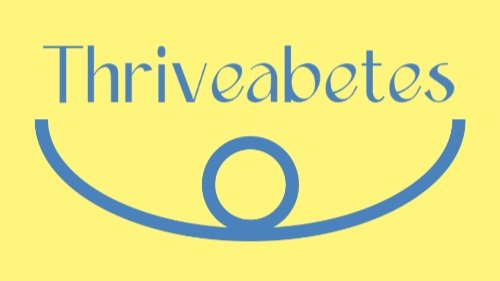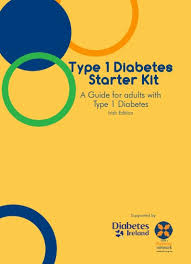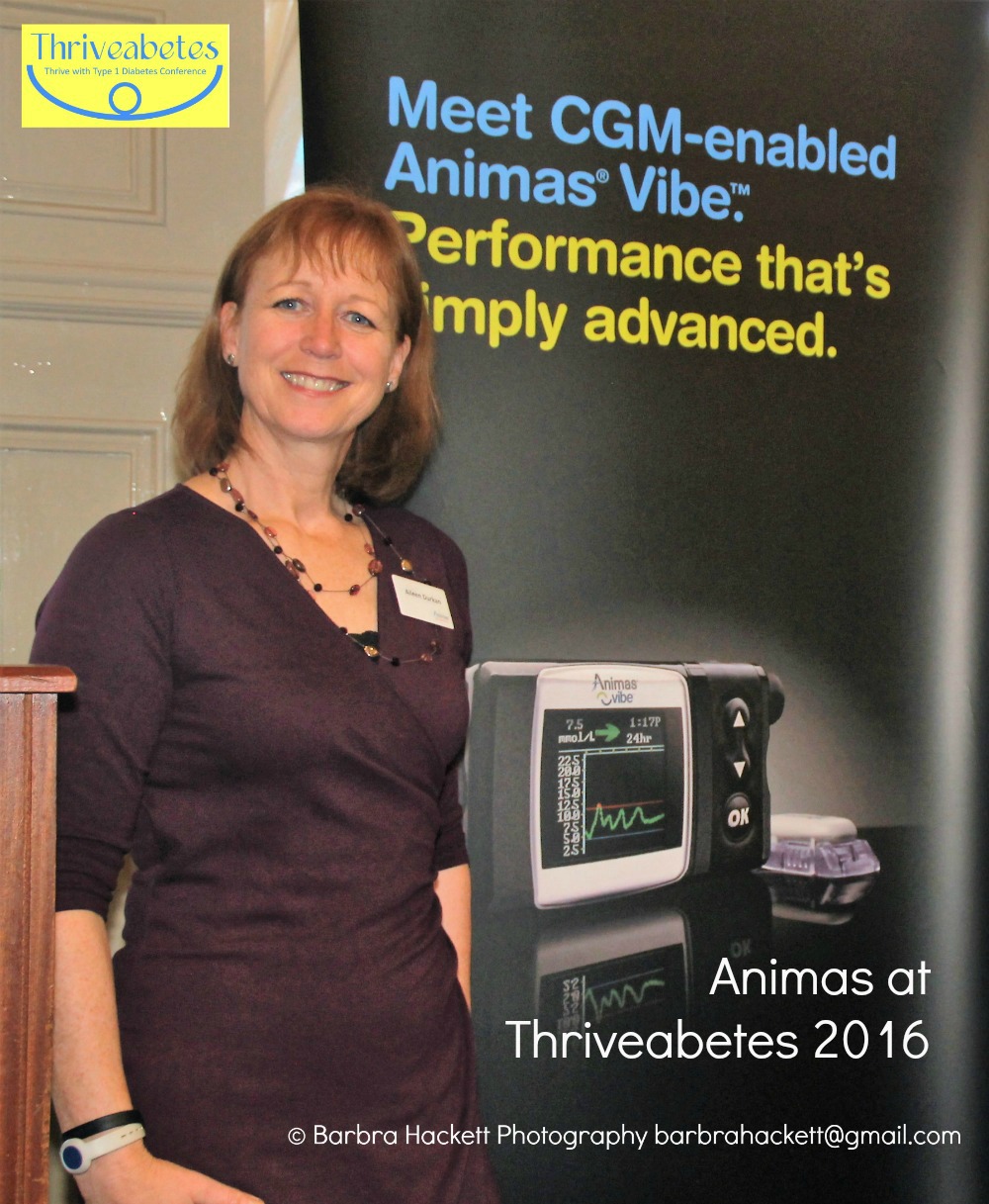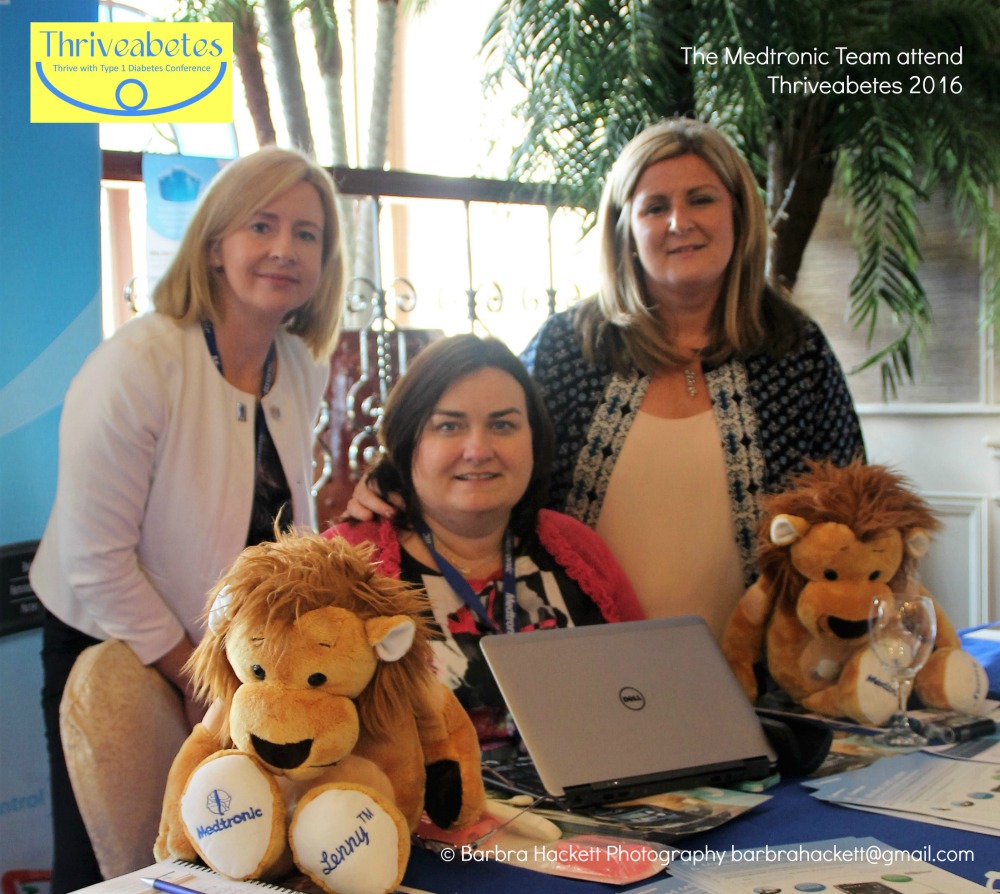Finding sources of support to help you in your life with diabetes isn't always easy. A few short years ago it was extremely difficult but then the world of social media came along and opened up so many doors to us. This week's Thriveabetes blog post comes from Davina Lyon, Co Founder of the Diabetes T One website and Thriveabetes event organiser. Davina was diagnosed with type 1 diabetes almost 10 years ago in her late forties. Her post this week takes us through her diagnosis and how she found support from the diabetes community.
My Path to Diabetes Support
by Davina Lyon.
It's tough going back and remembering my diabetes journey from first diagnosis to now, but I feel it's important to tell my personal story, it might just help someone else who is struggling, confused, frightened and feeling alone.
In 1994, before diabetes, I was diagnosed with Graves Disease (overactive thyroid) at age 35. Graves Disease affected every part of me including the electrical system in my heart and in 1999, after several heart attacks and stays in ICU, I had a keyhole heart surgery called an AV Node ablation for Supraventricular tachycardia (SVT), which is an abnormally fast heart rhythm arising from improper electrical activity in the upper part of the heart. This fixed the problem and I got away with not needing a pacemaker.
In September 2006, I thought I was out of remission with Graves, because I had been unwell again. I scheduled a visit to my GP and it was then, when my blood glucose was tested, that I was misdiagnosed with Type 2 diabetes. Because I was 47 years old type 2 seemed more likely.
Needless to say things didn't improve with oral meds and to cut a long story short, further tests in December 2007 established that I actually had Type 1 diabetes. This was my second autoimmune disease but this one would be with me for the rest of my life.
The months that followed were some of my darkest, I just couldn't stop crying, I didn't want to leave the house and the very thought of food made me panic. To say the diagnosis knocked me sideways is putting it mildly.
Although I felt I couldn't function, I didn't consider this depression and still don't. It was shock, isolation, crippling fear and absolutely no support. I was torn between being terrified of going to sleep at night in case a hypo killed me. On the other hand, if I fell asleep and didn't wake, I wouldn't feel sad anymore and I wouldn't be lonely.
I didn't have anyone else to lean on. I had raised my daughters alone since they were 9 and 13, now adults. My instinct was to shield them, protect them and not cause them to worry. My siblings were totally intolerant of it (my diabetes), they thought I was attention seeking and felt I should be able to continue my life as before and "do whatever I had to do at home in private". They couldn’t understand why I needed to take insulin injections in public or why so often. They thought I was being very OCD!
My Sunrise moment: The start of finding support!
Two months after my official diagnosis of Type 1 diabetes, the hospital phoned requesting I attend a 3-day carb counting course, it was necessary they said, all newly diagnosed must attend. I agreed but I didn't want to.
On day one, I managed to dry my tears for long enough to get the bus to Naas hospital where, for the first time, I met others with Type 1. I can't describe the relief I felt that day, of being able to talk to others about it, we all tested blood at the lunch table, followed by injecting insulin. It felt like a whole other world, and I had found it.
I left the hospital that evening and headed for the bus home, I think it was the first time I'd smiled in many months, then I fell, smashed my face off a wall, broke my toe and had to pick my broken piece of tooth out of my lip. I got home with blood all down my coat & badly shaken.
I still turned up to the course for the next two days, even with the cuts, the fat lip and black eye. I limped in with my broken toe strapped to the next one and full of painkillers because it was the first time I had enjoyed something and felt good in a long time.
I loved the feeling that I was one of the gang, a member of the club. That was my first experience of diabetes support and being a part of the diabetes community.
After that, things took a positive turn, Dr Google and I became good friends. Through Google I found diabetes websites and lots of Type 1 diabetes information. I found Facebook pages and then of course I stumbled across private Facebook groups. It took endless hours on the internet but I found them. I could then learn from others experience, ask questions and eventually go on to get involved in advocacy with others.
Support when living with diabetes is so important. It's about not feeling lost and alone, scared and confused. For me, finding that support was like finding the road home. It's a pity the hospital didn't hand out a printed sheet with all the information of online support to me.
I became used to talking about it and I had started to open up to my daughters about it all. One of them arrived home one day with a 44 page print out, A "Type 1 Diabetes Starter Kit". I read every word, I still have it in a folder in the kitchen with my other diabetes related stuff.
I couldn't help but wonder about the Authors: Kate Gilbert, Dr Alison Nankervis, Diabetes Educator, Kerrie-Anne Arnold, Gráinne Flynn, Dr. Anna Clarke). In my mind I imagined they must be people who knew their stuff, working in private practice. They would remain faceless names I'd likely come across time and time again but as they probably lived far,far away and the chance of crossing paths with them was slim.
It is because of my personal struggle, that Diabetes T One was founded. I just couldn't bear the thoughts of anyone going through what I went through. My aim became raising diabetes awareness, diabetes advocacy and diabetes support in the hope that others joining our community didn't feel quite so isolated, scared and alone.
The diabetes online community are brilliant support, but I also love the opportunity of meeting up with other t1s while on mutual missions, or just to hang out and have a coffee when I get the chance.
My closing thoughts: I firmly believe knowledge is power, even if that knowledge is difficult to take on board sometimes. Today I live side by side with my type 1 diabetes, I respect that "it" is in control, and I use what tools I have to carefully manage it. I have made peace with it and no longer see it as the monster that once instilled a crippling fear in me.
Type 1 doesn't define me but it has played a part in what made me who I am today. I am a Mum, I am a Grandmother, an Advocate and so much more. Type 1 diabetes is in me, and with me, but it's not who I am. I'm not a "diabetic", I am a person with Type 1 diabetes, we are a package deal.
*If you are reading this and know someone who is diagnosed with diabetes, or their child is diagnosed with diabetes all you need to do is comment on this blog to get in touch with us. We can then help to get you the support you need
PS : As for those authors of the Type 1 Diabetes Starter Kit? Some are no longer faceless names ...... instead, they are my inspiration!
I'm Davina Lyon, I'm not a professional, just a person With Type 1 Diabetes sharing my experience.
Thank you so much to Davina for sharing her story with us. If any of you are looking for more in terms of online or offline support in living with diabetes; click on this link.






